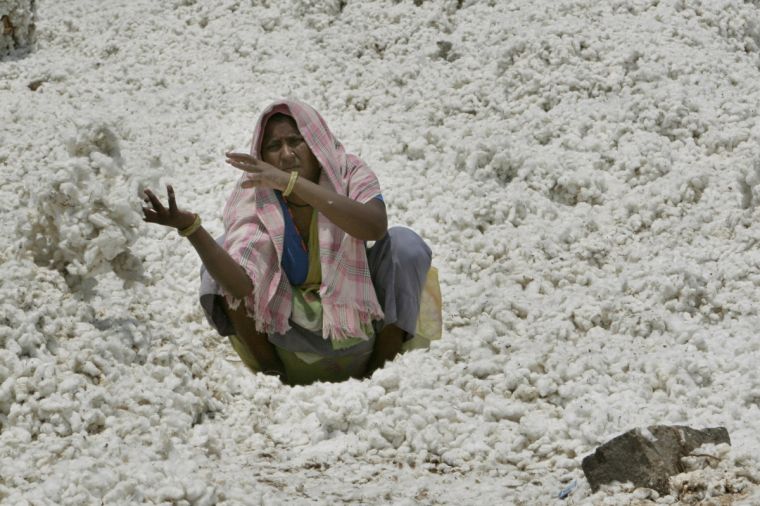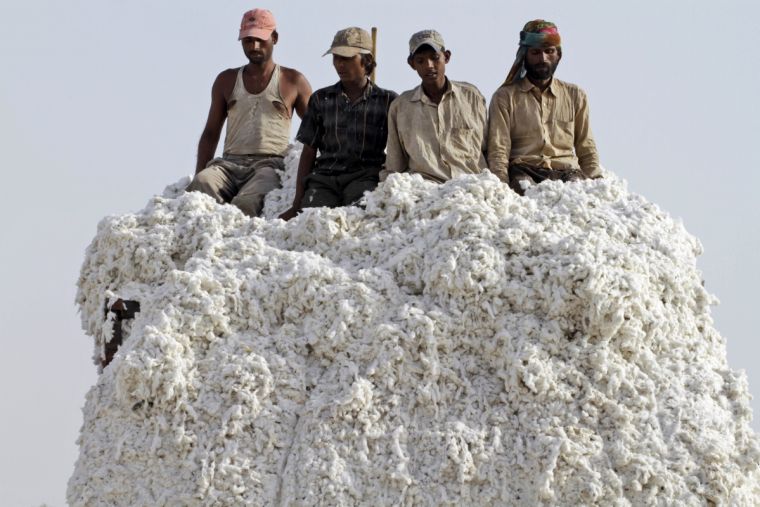Who are the real slaves to fashion?

Global advocacy organisation Stop the Traffik is urging consumers to pay more attention to where their clothes are made, and to call for an end to slavery in the fashion industry.
"It is a little known fact that over 200,000 young women and girls are trafficked to work in the cotton industry in the Tamil Nadu region of India," its website reads.
"Female workers, mainly aged 14 to 23-years-old, are recruited with false promises of a good job and a lump sum payment...Once recruited, they are essentially trapped within a factor for up to five years."
According to Stop the Traffik, these women are forced to live and work in horrendous conditions to provide cotton that makes many of the clothes available in shops here in the UK in return for very little, if any, pay. This cotton "is likely to be found in most of our favourite shops and labels. It is likely to be in cotton garments in our wardrobes and drawers," the charity warns.
A lack of transparency in the supply chain means that it's impossible to track where all our cotton is produced and therefore to regulate the conditions faced by workers, but Stop the Traffik believes that this needs to change.
"As consumers we have a powerful voice, we can use it to urge companies to change their behaviour so that they can tell us that the clothes we're buying are Traffik-Free," says CEO Ruth Dearnley.
"We want to bolster consumer awareness and change the lives of those working in these factories in India."

As part of the campaign, the organisation is urging people to petition their favourite shops and the CEOs of fashion brands to let them know that consumers care about the condition of those who make their clothes.
A 'Clothes Swap Pack' is also available, which will help those who'd like to put on an evening to share the campaign with their friends while also raising money for Stop the Traffik.
Another organisation, Fashion Revolution, is also actively calling for an end to slavery and on April 24 held the Inside Out campaign, which encouraged people to wear their clothes with the label showing for one day and share photos of it on social media.
"Together we can use the power of fashion to catalyse change and reconnect the broken links in the supply chain," the website states.
"Wear your clothes inside-out to help start the beginning of an industry-wide transformation towards a more sustainable future."
Thousands joined the campaign; taking to Twitter, Facebook and Instagram to ask their beloved brands where their clothes are made, and to call for fair pay and good working conditions for all those employed in clothes factories around the world.
"It's true many of us love fashion, and there's nothing wrong with that," a Stop the Traffik blog notes.
"But what is wrong is the exploitation of vulnerable women, together let's make fashion #TraffikFree!"
To find out more about the campaign, go to www.stopthetraffik.org/campaign/fashion











